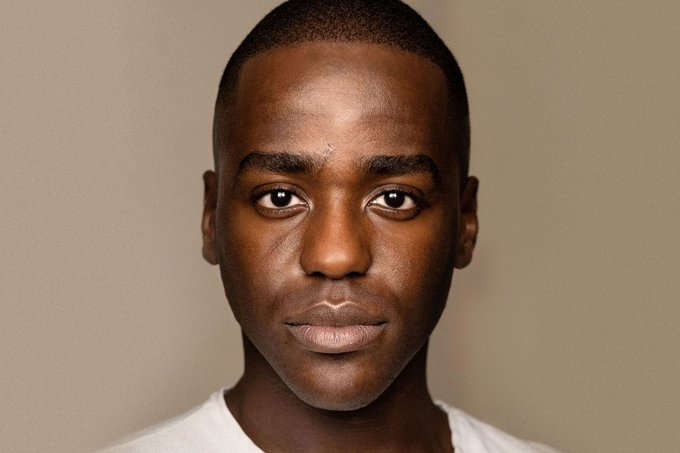"Here we go again..."
AROUND lunchtime today a tweet dropped confirming the new Doctor Who casting.
No specially-shot promo during the FA Cup final or a live unveiling, complete with awkward walk-on from One Direction, this time around.
It was a back-to-basics announcement which felt in the style of the show's original relaunch in the mid-noughties. Name. Quotes. Startdate.
Ncuti Gatwa will undoubtedly grab headlines tomorrow as "the first black actor" in the role, even if the claim - repeated on BBC News' own official article - isn't quite correct.
Under Chris Chibnall's more than messy attempt to insert previously unknown doctors into the timeline, Jo Martin has previously made a couple of guest appearances as a mysterious new incarnation.
But Gatwa's arrival is still very significant. He'll be the first non-white actor to properly own the part. He will top the cast list. He'll be the first to appear on an officially licensed pencil case!
For fans the questions are already racking up. What will he wear? Will he keep the Edinburgh brogue? Will he commit to returning for the 70th anniversary multi-Doctor special in 2033?
But as when the incumbent Jodie Whittaker was cast back in 2017 - the first woman in the part - there will also be plenty of pundits keen to politicise the casting of a young man originally from Rwanda.
When Tory MPs make slightly unhinged claims that the previous gender swap could have seen young men turn to crime, or columnists proclaim that the role reverting back to "another old white guy" would be reason to switch off, you have to accept that a family sci-fi show has become another culture war issue.
Extreme views on both sides quickly rankled, particularly when they came from commentators who knew frankly nothing about the really pressing issues - like the size of the police box windows and what had happened to Silurians' third eyes.
Simply put trying to blame stabbings on the fact that Ben Whishaw wasn't picked to pilot the Tardis was as bizarre as it was insulting. But equally suggesting that any prospect of casting a man again was utterly unacceptable felt like its own type of bigotry.
At the time Whittaker was unveiled I argued that, despite lazy stereotyping, the critical mass of fans simply wanted the show to do well.
Unfortunately by most objective measures it's been a torrid few years. Ratings have plummeted - the recent Easter special drew a smaller audience than a repeat of the Antiques Roadshow - and casual viewers have drifted away.
It would be wrong to lay the blame entirely on the current team. Viewing figures had started to decline during Peter Capaldi's tenure and there was a sense that the BBC had started to lose interest in what was no longer a hot new property.
A decision to move the show from its flagship Saturday night slot to Sundays had echoes of the drama's treatment in the 1980s, while Covid-19 forced a further shortening in series that were already being reduced in length.
But Chibnall also made a fair few mistakes. For whatever reason Whittaker has never seemed, to me at least, entirely comfortable as the lead and her Tardis has often been overcrowded.
Scripts have sometimes been accused of political correctness. This ignores the fact that the programme has always had a political edge - whether needling Margaret Thatcher in the original run or the Iraq War in the revival. Where the more recent instalments have in fact gone wrong is with deadly-dull stories.
Steven Moffat's puzzlebox plots and Russell T Davies' heartfelt romps both had their detractors, but few would have described them as boring.
Against this backdrop and a rapidly changing TV landscape - in which streaming services pose a possibly existential threat to traditional programming - returning showrunner Davies has something of a mountain to climb.
In recent weeks some papers had reported that the Welshman could offer the role to an A-lister such as Hugh Grant.
The rumour may have stemmed from the actor being linked to the part back in 2004 or the fact that, like Eccleston and Tennant before him, he'd worked with Davies before (previously appearing in award-winning biopic A Very English Scandal).
Although there was also something plausible about casting an experienced star known on both sides of the Atlantic to try and generate interest. With production now outsourced to independent outfit Bad Wolf, old constraints over wage bills wouldn't have applied.
That said, perhaps someone like Gatwa - an up-and-comer - was always going to be a more obvious choice.
While not "a name" in the usual sense, his Bafta-nominated role in a major Netflix series and large social media following will give him an instant cachet with younger audiences.
That's not to say we should expect the "Instagram Doctor". Predictions of a more street smart time-traveller were also made when the similarly youthful Matt Smith was preparing to make his debut. Instead we eventually got a professorial character - complete with tweeds and bow tie!
Nonetheless, Davies' selection suggests that, just as when he revived the show almost 20 years ago, he is willing to confront some serious perception problems.
In Eccleston he found an actor known for serious, often gritty performances at a time when tabloids were trying to link Paul Daniels with the role.
The battered leather jacket which became No 9's trademark and unmistakable Manchester accent - "lots of planets have a north - made clear to critics the show wouldn't stay stuck in the past.
In a similar vein, casting Gatwa could be a purposeful attempt to recapture the interest of those younger viewers who will be crucial to ensuring its future.
Exciting times lie ahead...
Exciting times lie ahead...




Comments
Post a Comment